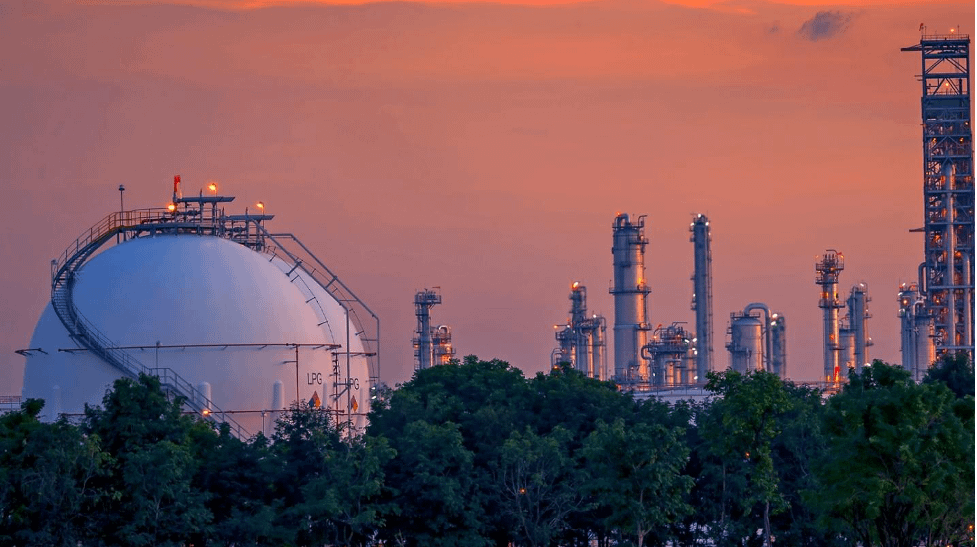The petrochemical trends of 2022 were challenging for many companies as the world continued to recover from COVID-19 and other global emergencies. Petrochemicals are chemical substances made from petroleum and natural gases. They are crucial for manufacturing everyday products, including tires, cosmetics, and medical equipment. They can also be found in the food and renewable energy industry. Knowing they are present in almost every daily-used commodity makes them an important and strategic product for global economies and non-petrochemical companies, and the petrochemical industry trends are crucial to pay attention to.
History of the Petrochemical Industry
Petrochemical trends and the petrochemical industry date back to the 19th century. The early uses of oil began when investors found another alternative to whale oil. Since then, oil refineries have started to be built, and oil has been used as fuel for new modes of transportation.
Petrochemicals were later used as a cheaper alternative to producing many of our modern-day products, including plastics, rubbers, cosmetics, nylon, fertilizers, pesticides, and even medical equipment. They became in demand around the 1910s when there was an increase in demand for non-fuel products made from petroleum. The 1940s saw an acceleration in petrochemical production driven by the rise in demand during the Second World War.
Therefore, the petrochemical industry’s history spans more than 150 years.
Petrochemical Trends 2022
Following the emergence of the new omicron variant of the coronavirus, which once again affected the global economy and petrochemical trends in 2022, petrochemical players worldwide continued to face difficulties in the first half of 2022. The so-called “new normal” business environment, combined with ongoing COVID-19 obstacles, challenged positive petrochemical trends that required the industry to adjust.
COVID-19 particularly had an impact on shipping and plant operations. In 2021, pandemic-related delivery limitations impelled compartment cargo rates to remain high, which continues in 2022 and restricted international exchanges and trading.
Asia, particularly China, continued to lead the expansion of petrochemical plants in 2022. China continuously looked for opportunities to keep its imports low and exports high. In the US, the recuperation in styrene request will probably be because of the booked support of a few significant plants, while Europe hopes to re-stock its petrochemical inventory.
International Petroleum Trends
The petrochemical industry trends are largely affected by the petroleum industry, which makes it vital to look at petroleum trends. Petroleum is known to be a geopolitically strategic resource as it is not an abundant and renewable resource.
The International Energy Agency reported that international petroleum trends are predicted to climb by 2 mb/d in 2023 to a record high of 101.9 mb/d. Non-OECD countries, as well as China, will account for 90% of this increase. OECD countries will account for 57% of this growth in the second quarter of 2023 as demand weakens due to poor industrial activity and warm weather.
Additionally, Russian oil exports in March reached their highest since April 2020, thanks to trade levels that returned to what was last seen before Russia invaded Ukraine. Estimated oil export revenues recovered by $1 billion to $12.7 billion but were 43% lower than the previous year.
Top 10 petrochemical companies that affected the worldwide petrochemical market
Petrochemical trends for the coming years clearly show an increase in the manufacturing and trading of this chemical substance due to its crucial and strategic use. Their growing demand is since petrochemicals are a cost-effective solution to growing global demand.
Noteworthy companies changing petrochemical trends include:
- Anchorage Investments
- Mitsubishi Corporation
- BASF SE
- Valero Energy Corporation
- Enterprise Products Partners
- Marathon Petroleum
- Occidental Petroleum Corporation
- Petroleo Brasileiro S.A.
- China Petroleum & Chemical Corporation
- Equinor ASA
What are the threats to the petrochemical industry?
Despite the many benefits of the petrochemical industry, it continues to pose certain challenges to petrochemical trends due to its chemical nature. These risks range from storage methods to potentially dangerous chemical reactions.
These threats include:
- Leaks of gases or flammable products,
- Pipelines for combustible materials,
- Deterioration, corrosion of deposits that can lead to spills,
- Transfers of petrochemical products, product handling,
- Electrical maintenance,
- Traffic within petrochemical plants.
What is value engineering in petrochemical project management?
In petrochemical trends and petrochemical project management, value engineering is a systematic process in which the value of a project is leveraged through an analysis of its functions, costs, and performance. Value engineering can be useful in helping project engineers optimize the design, construction, and operation of a project, all while attending to clients’ needs and expectations.
Red Sea Petrochemical Project
Anchorage Investments is positively affecting petrochemical trends with its newest petrochemical facility, Anchor Benitoite. The company is set to build a petrochemical complex in the Suez Canal Zone of Egypt. The project is strategically located and will offer more than 2,500 jobs and transform Egypt’s positioning in the industry into a regional hub. The company can efficiently attend to its project goals and fulfill its leading market position.

To conclude, the petrochemical trends in 2022 show a global industry recovering from the COVID-19 pandemic, which affected almost all industries. As petrochemicals largely involve the use of petroleum, looking at petroleum trends is essential in determining the prospects of the petrochemical industry.
Petrochemicals are essential in modern-day societies due to their growing demand and use in most daily commodities. Companies like Anchorage Investments continue to push petrochemical trends forward with their newest Anchor Benitoite facility.
